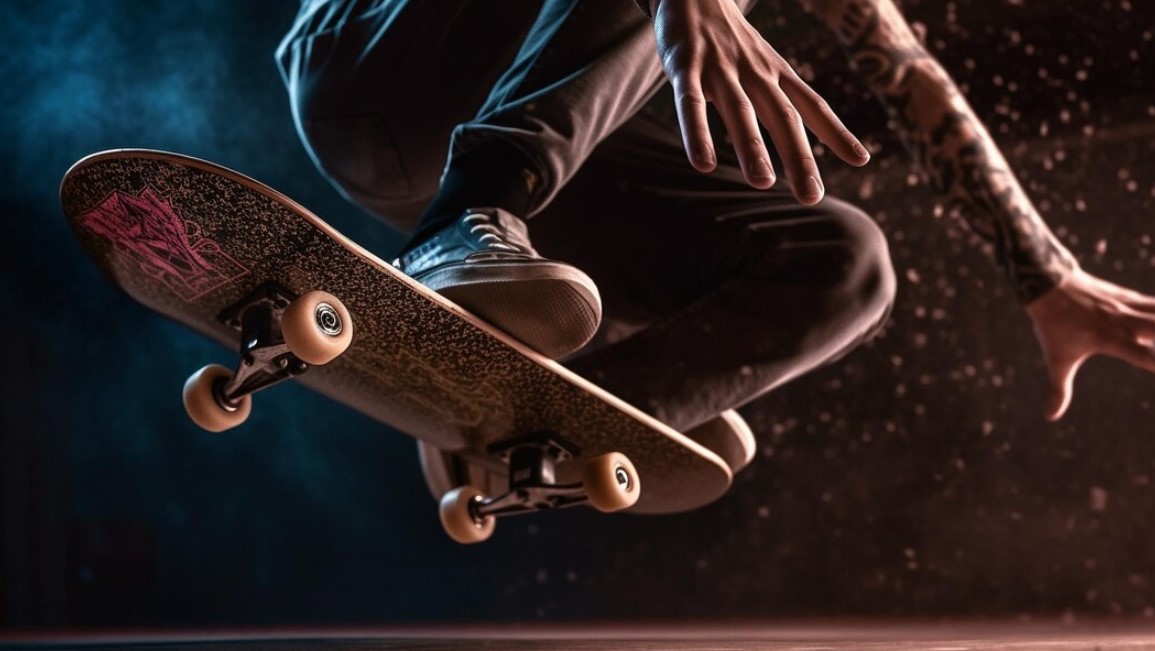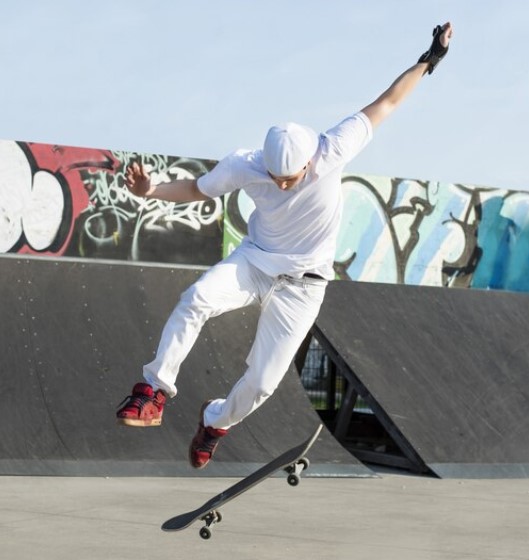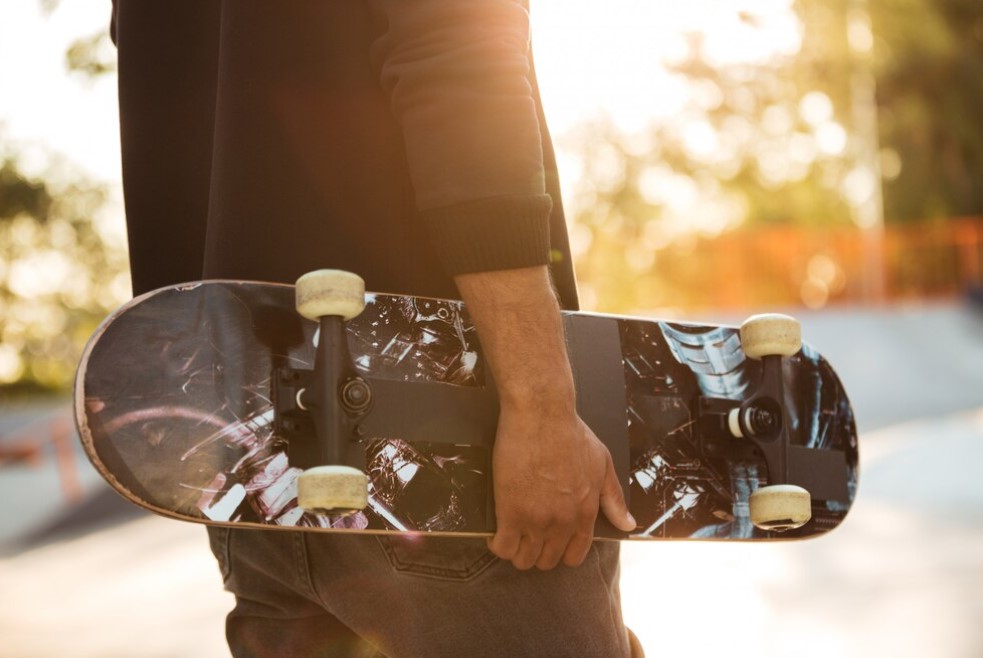
Skateboarding is an exciting sport that takes practice and dedication to master. Proper training is essential for developing your skills and avoiding injuries as a beginner. With the right approach, you’ll be rolling with confidence in no time.
Learn the Basics First
Before attempting tricks, get comfortable riding around and balancing on your board. Practice stepping on, pushing off, turning, stopping, and kicking the tail to lift the front wheels. Work on your stance, keeping knees bent and centred above the trucks. Get used to shifting your weight to control speed and direction. Mastering the basics will make learning tricks much easier.
Spend at least 30-60 minutes per session working on fundamentals. Find smooth terrain like an empty parking lot or basketball court to practise on. Concrete is ideal, while grass or gravel will be more challenging for beginners. Wear safety gear like helmets and pads to protect yourself while learning. Don’t be afraid to fall – it’s part of the learning process! Have patience and take it one step at a time.
Start by placing the board on grass and practising stepping on, balancing, and gently kicking to move. This allows you to get a feel for the board without rolling. Once comfortable, try rolling slowly on smooth pavement. Stay centred over the bolts and shift weight to turn. Don’t go too fast until you’ve mastered control. Have a friend gently push you to get used to the feeling while rolling.
Develop Core Strength
Skateboarding requires strong legs, core, and balance. Work on your leg and core muscles with squats, lunges, planks, and other dynamic exercises. Yoga is great for improving flexibility and preventing injuries.
Stronger muscles will allow you to ollie higher, kickflip with more power, and maintain stability for those sketchy landings. Aim for 15-30 minutes of strength training 2-3 times a week. Squats, bridges, and crunches will target the key muscle groups. Don’t forget to stretch before and after sessions to enhance flexibility.
Try mixing up your strength training with aerobic exercise like cycling or running to build endurance. This will allow you to skate for longer sessions without getting exhausted. But don’t overdo it on heavy training right before a skate session, as fatigued muscles are more prone to injury. Listen to your body and take a break when needed.
Learn Tricks Gradually
Here’s a suggested order for learning key beginner tricks:
| Trick | Difficulty |
|---|---|
| Ollie | Beginner |
| Shuvit | Beginner |
| Kickturn | Beginner |
| Fakie Riding | Intermediate |
| Heelflip | Intermediate |
| Kickflip | Intermediate |
| Pop Shuvit | Intermediate |
| Frontside 180 | Advanced |
Attempting advanced tricks too early can lead to bad technique. Build a solid foundation before moving to the next level. Master one trick fully before adding the next. This will lead to smoother progress.
Don’t expect to land new tricks every session. Some may take days or weeks of practice. Break tricks down into steps and master each piece. Record yourself to analyse form and look for improvements. Identify problem areas and drill those specifically. Celebrate small wins like improving height or rotation.
Find a Skate Buddy
Having a friend to learn and progress with makes training more engaging and fun. You can give each other tips, motivation, and celebrate successes. Experienced skaters can provide handy pointers and spot you on new tricks. Check social media or local skateparks to connect with fellow beginners and veterans. Joining group lessons is another great way to meet skating pals. The community aspect enhances the joy of skating as you learn together.
Having an experienced skater coach you through a new trick can help you learn proper technique. They can hold your shoulders to keep you centred while practising ollies. Overcome fear of falling by holding their hand attempting kickflips. Getting tips from pros accelerates your learning curve.
To conclude, with proper preparation and a gradual approach, skateboarding mastery is within reach. Develop your board skills, build core strength, learn tricks in stages, and find skate buddies. Be patient through falls as you progress. Let the fun of skating motivate you to persist. With regular practice, you’ll be rolling and landing tricks in no time! The key is taking it step-by-step and not giving up. Soon you’ll be skating like a pro.

